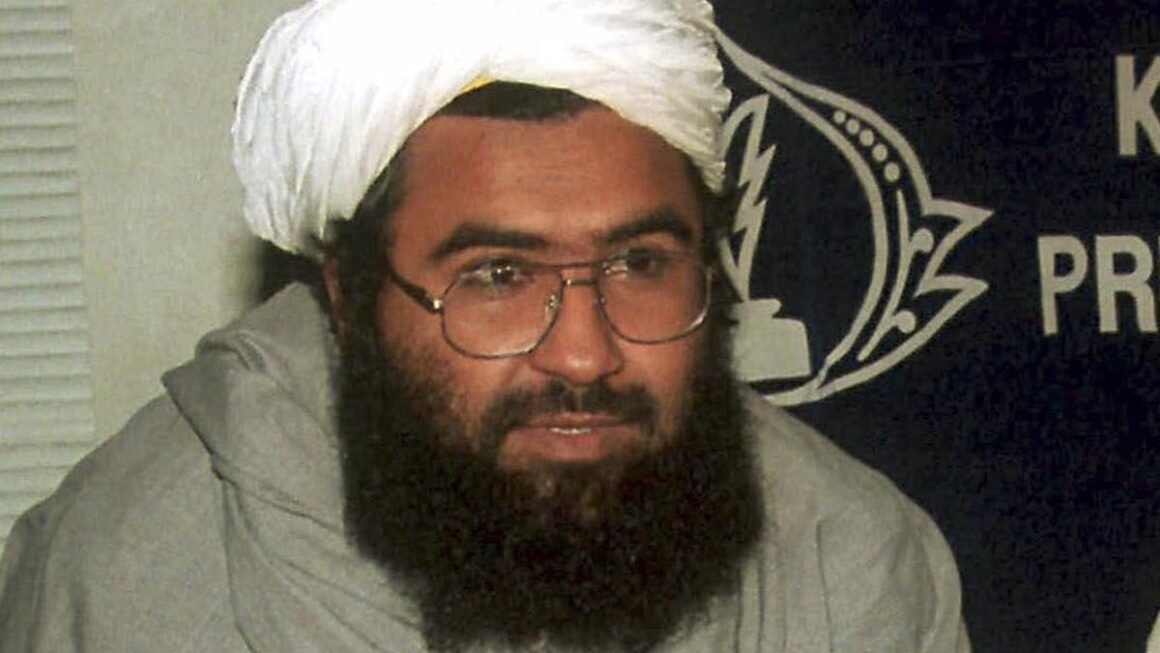
A Shocking Admission From Within JeM
In a rare and candid disclosure, a senior Jaish-e-Mohammed (JeM) commander has admitted that the family of the terror outfit’s chief, Maulana Masood Azhar, was “torn into pieces” during India’s Operation Sindoor in Pakistan. The video statement, which has now gone viral, provides the strongest acknowledgment yet of the devastating impact India’s targeted strikes had on JeM’s leadership and personal circles. This admission has silenced skeptics who had questioned the effectiveness of the mission.
Operation Sindoor: Precision and Symbolism
Launched on 7 May 2025, Operation Sindoor was India’s retaliatory strike in response to the Pahalgam terror attack, which killed several Indian security personnel and civilians. The attack had reignited public anger across India and heightened demands for a decisive military response. In a carefully calibrated offensive, Indian forces targeted JeM’s nerve centers, including the Markaz Subhanallah complex in Bahawalpur, the terror group’s headquarters.
Reports indicate that multiple family members of Masood Azhar, including his elder sister, brother-in-law, nephew, niece, and several children, were killed in the strike. Sources also confirmed that close associates and aides were among those who perished. This blow not only shook JeM’s command structure but also struck at the symbolic heart of its leadership, making the terror mastermind appear vulnerable for the first time in decades.
“Torn Into Pieces” – The Grim Reality
The JeM commander’s statement confirmed what had only been speculated until now. He described how the Azhar family compound was devastated, leaving behind what he chillingly called “pieces.” The rare acknowledgment from within JeM marks a moment of truth that Pakistan has tried hard to downplay. For years, Islamabad has denied harboring or sheltering Azhar, despite his presence being an open secret. This admission exposes the hollowness of Pakistan’s official stance.
India’s Message: Zero Tolerance for Terror
New Delhi projected Operation Sindoor as a demonstration of its zero tolerance policy against terrorism. By striking at the heart of JeM in Bahawalpur, India sought to:
- Undermine JeM’s operational capacity.
- Send a message that terror masterminds are not beyond reach.
- Establish deterrence against future cross-border attacks.
- Signal to Pakistan that terror safe havens will invite direct consequences.
Indian officials emphasized that the strike was a precision mission, designed to minimize collateral damage while dismantling terror infrastructure. This was not an act of war, but a calibrated counter-terror action, aligned with international law on self-defense.
Regional and International Impact
- Pakistan’s Position: Islamabad initially denied the extent of the damage, but the commander’s statement has reignited questions about Pakistan’s continued sheltering of terror groups. Domestically, Pakistan’s government faces criticism for failing to protect its territory from foreign strikes.
- International Response: Global powers have walked a fine line—acknowledging India’s right to self-defense while urging restraint to prevent escalation between two nuclear-armed rivals. The United States, European Union, and Japan called for “measured responses” while quietly supporting India’s stand against terror.
- Diplomatic Fallout: The revelation strengthens India’s case at global forums such as the United Nations, where it has consistently pushed for stricter sanctions against JeM and its leadership. It also bolsters India’s narrative that Pakistan remains a terror-exporting state.
Psychological Blow to JeM
The loss of Azhar’s family members and inner circle represents more than a personal tragedy — it is a strategic and psychological setback. Analysts suggest JeM may struggle with:
- Leadership stability, given the psychological impact on Masood Azhar himself.
- Recruitment challenges, as propaganda narratives of invincibility weaken after such a targeted strike.
- Funding disruptions, with international donors and networks wary of backing a group so visibly weakened.
- International isolation, as mounting evidence undermines Pakistan’s claims of plausible deniability.
The Broader Message to Terror Networks
Operation Sindoor has sent shockwaves across the jihadi network operating from Pakistan. It has been demonstrated that India’s intelligence and strike capabilities are capable of reaching deep into hostile territory with accuracy. For other groups such as Lashkar-e-Taiba and Hizbul Mujahideen, the strike is a chilling reminder that no safe zone is truly safe.
Public Sentiment in India
The operation and subsequent revelations have sparked a wave of public support across India. Families of the Pahalgam martyrs have hailed it as justice delivered. Political leaders across the spectrum—barring some critical voices—have stood behind the government’s bold move. The public mood reflects a desire for more proactive security strategies to prevent future tragedies.
Operation Sindoor was not just another cross-border strike; it was a watershed moment in India’s counter-terror doctrine. The admission by a JeM commander about the fate of Masood Azhar’s family underscores the depth of the blow inflicted. While risks of retaliation remain high, the operation has reaffirmed India’s resolve to strike deep into terror sanctuaries and reshape the narrative of accountability in South Asia.
India’s message is unmistakable: No mastermind, no haven, and no family ties will shield those who orchestrate terror against its citizens. Operation Sindoor marks a turning point where India’s fight against terror has grown sharper, bolder, and uncompromising.
FOR MORE BLOGS – beyondthepunchlines.com

 Add to favorites
Add to favorites






